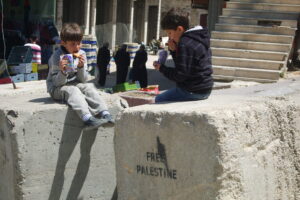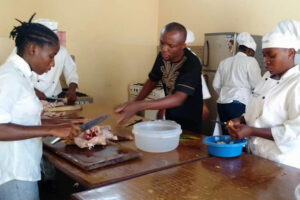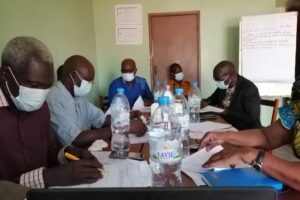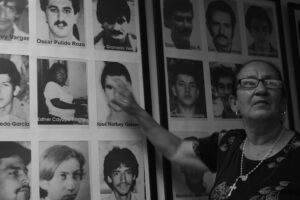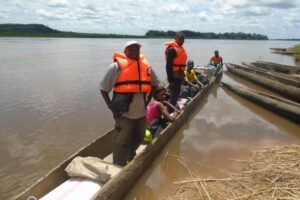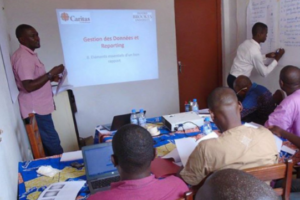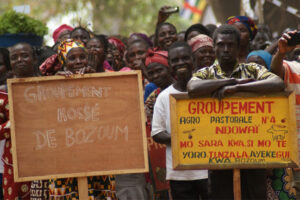ACTION-RESEARCH
CERAR chooses to conduct research not on local populations
but with these very populations, to put their knowledge and their visions at the centre of the research process and to achieve changes in their social conditions.
Participatory action research :
- integrates population into all phases of research, beyond needs assessment
- reaches alternative solutions, beyond the application of ‘standard’ responses
- is oriented towards maximizing impacts beyond the direct results of projects.
Participatory action research, considering the volatility of protracted crisis situations and the constant need to adapt field knowledge, engages local actors in research on their everyday realities and the translation of the results of this research into resilience initiatives. This is how the Gen-Up project in Cameroon and Sierra Leone enabled young female job seekers to better understand barriers and possibilities to decent work. They thus improved their job search, empowered in their self-confidence through the research process and in their job search thanks to proximity mentorship and a better awareness of their own context.
The action research process simultaneously combines research with action in the field in a permanent game of interactions between the two. It is mainly based on the idea that to know a social reality, one must participate in its transformation. A research or development intervention is not done ‘on’ a field but ‘in’ a field situation. In this, action research does not work on an object (of study) but with knowledge-producing subjects/social actors, co-authors of the research.
So, the importance of experimentation and capitalization in the NGANGU project in Central African Republic has become a producer of knowledge both for local and international actors participating in the project.
Action research shares certain values such as :
- a sense of cooperation and social responsibility,
- a sense of participatory democracy,
- a sense of recognition of individual and cultural rights to strengthen and study social dynamics.
